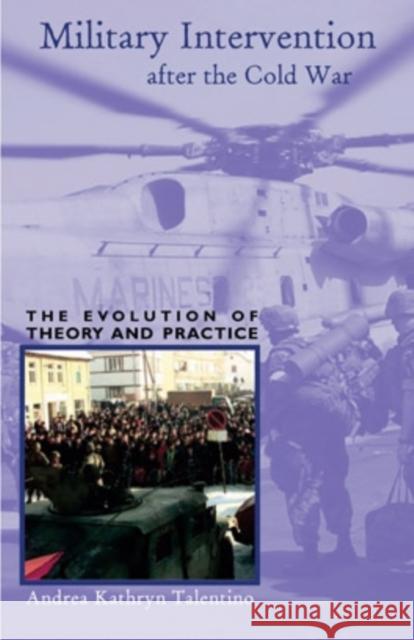Military Intervention After the Cold War, 4: The Evolution of Theory and Practice » książka
Military Intervention After the Cold War, 4: The Evolution of Theory and Practice
ISBN-13: 9780896802452 / Angielski / Miękka / 2005 / 376 str.
For hundreds of years military intervention was considered taboo and prohibited by international law. Since 1992, intervention has often been described as an international responsibility and efforts have been made to give it legal justification. This represents an extraordinary change in perceptions, and one that has taken place in only the space of a decade.
"Military Intervention After the Cold War" explores how and why this change took place, looking at how both ideas and actions changed in the post-Cold War period to make military intervention a tool of international security and a defining characteristic of the international system. Although it is often touted as a strategy to rebuild collapsed states, the examples of success are few and far between. Andrea Kathryn Talentino argues that standards of human rights and responsible governance have become part of the definition of international security. She addresses questions that are vital in the post-9/11 world, where weak and collapsed states are recognized as permissive and at times supportive environments for criminal actors.
The specter of terrorism has placed even greater emphasis on the need to understand why military intervention happens and how it could be more effective. With the news full of stories on intervention and nation-building, scholars, graduate and undergraduate students, and readers interested in understanding global interdependence will find Military Intervention After the Cold War an indispensable book.Andrea Kathryn Talentino is an assistant professor of international relations at Tulane University, New Orleans.The author of numerous articles on military intervention and post- conflict rebuilding, she is currently focusing on the link between nation-building and political violence.











